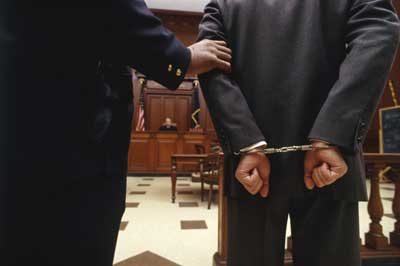Summary: Are you worried about taking your first deposition? Here are the top 7 tips for taking your first deposition.
What’s the single most terrifying experience for a young associate at a large firm?
- Realizing that you’ll have to bill 80 hours a week for the next four months to reach your minimum billable target?
- Being “asked” at a summer associates luncheon to stand up and tell everyone why the firm is a great place to work?
- Learning that you’ll spend the next three weeks in a Newark warehouse reviewing a document dump?
Actually, none of the above. For most young associates, the most nerve-rattling experience is their first deposition.
If you work for a small firm or a government agency, you’ll probably face this ordeal within your first six months. It won’t be pleasant, but after a half-dozen depositions, you could question witnesses in your sleep.
| THE MARKET FOR LITIGATORS IS HOT! CHECK OUT LITIGATION OPENINGS HERE |
At a large firm, the experience is far more stressful. You may not take or defend a deposition until your fifth year. By then, you’re embarrassed that you’re still a depo virgin. And the fate of a Fortune 500 company rests on your incisive interrogation (or so you believe).
Oh, sure, you’ve baby-sat minor witnesses’ depositions in multi-defendant cases a few times, but that doesn’t count. Until you actually do a deposition on your own, you’ll lie awake dreading the moment that opposing counsel, a court reporter or your own client says, “So, is this your first time?”
Taking a deposition should be easy. There’s no judge or jury to annoy. You run the show. Thanks to loosey-goosey discovery rules, you can ask virtually anything you want, as long as it “appears reasonably calculated to lead to the discovery of admissible evidence.” (But resist the temptation to crib from “Monty Python and the Holy Grail”: What is your favorite color? What is the air-speed velocity of an unladen swallow?)
Yet you’ve got the shakes. It is your only chance before trial to find out in detail what the deponent will say. And the more significant the witness, the scarier it is.
For my first deposition, I had to interrogate a plaintiff who had brought a discrimination claim against my client, a nationwide hotel conglomerate. Our best chance for summary judgment was to use the plaintiff’s words in deposition against him. The night before, I dreamed that a jury soaked my client for billions in punitive damages — all because I didn’t ask the right questions.
The truth is, it wasn’t a deposition for the ages. But the partners didn’t suggest I pursue other opportunities. And over time, I learned a few things about asking questions.
1. DON’T OVERPREPARE.
Excessive preparation is the hallmark of a large firm. And obviously, you need to review the file, outline the areas that you plan to cover and prepare exhibits of the documents that you want to ask about. But don’t take 40 hours to gird yourself for a four-hour deposition. For my first, I spent several days painstakingly assembling a trial notebook and a 30-page list of questions. I still made a fool of myself.
2. DON’T RESIST ADULT SUPERVISION.
Unless your first deposition is of an insignificant witness, a partner probably will insist on coming with you. Don’t waste time resenting this. A veteran at your side can whisper questions that you forgot to ask or rein you in when you’re too far off-track. Most important, a partner’s presence often discourages opposing counsel from bullying you with bogus objections. It was remarkable how much better the other side behaved when I had backup. Of course, if the partner shows up soused or spoiling for fisticuffs, you’re in trouble.
3. LISTEN TO THE DEPONENT’S ANSWERS.
The point of this exercise is not the words coming out of your mouth. It’s easy to get so focused on remembering the questions that you don’t pay attention to the responses. During almost every deposition, a witness will slip and reveal something unexpected. Try to notice.
4. WATCH FOR FLYING OBJECTS.
Especially important if you practice family law, which tends to bring out the worst in counsel and clients. I remember a divorce-case deposition in which the wife suddenly flung a water glass at her estranged husband. It just missed his head and shattered against the wall, sending shards across the conference room. One word of advice: plastics.
5. WHEN DEFENDING, DON’T OBJECT EVERY TIME YOU DON’T LIKE THE QUESTION.
There’s not much you can really do to prevent opposing counsel from asking insipid and marginally relevant questions. The only objection that you waive by not making it during a deposition is to the form of the query. But it’s excruciating to just sit there while your witness is grilled by a jerk. Defending my first deposition, I felt compelled to object even when I had no basis. That transcript is littered with “Objection — fishing expedition,” “Objection — hypothetical question” and at least one “Stop badgering the witness.”
6. INFORM YOUR WITNESS THAT, “SENATOR, YOU’RE NO JACK KENNEDY”
The civil discovery process, which often degenerates into a game of “hide and go file motions to compel,” has not been helped by the president’s example. Unless you remind your witness beforehand that he really does have to answer opposing counsel’s questions, don’t be surprised if he tries to evade the most harmless queries:
Q: Please state your name for the record.
A: Are you asking for my full name, my given name or my CIA deep-cover name?
Q: How old are you?
A: That’s none of your business. And frankly, I stopped counting after 29.
Q: What’s your occupation?
A: I don’t define myself by what I do for a living.
7. DON’T CALL THE JUDGE UNLESS THERE’S BLOOD ON THE CARPET.
Depositions are a lot like professional wrestling: Grandstanding is expected, and nobody really wins or loses. Lawyers who have never had a jury trial, but think they’re top-gun litigators, live out their Perry Mason fantasies. When opposing counsel runs amok, your first instinct may be to phone the court. Kill that impulse. Threatening can be effective, but don’t actually call. There is no better way to irritate a judge than to whine that the other lawyer is being mean. Go back to your corner and take a deep breath. Eventually your adversary will run out of steam.
And before you know it, your first deposition will be over. Don’t look back. Chances are, you weren’t really as awful as you remember.
| THE MARKET FOR LITIGATORS IS HOT! CHECK OUT LITIGATION OPENINGS HERE |
Image Credit: Expert witness deposition in a mock trial by Science Education Resource Center at Carleton College. Licensed under CC BY-SA 3.0.





































